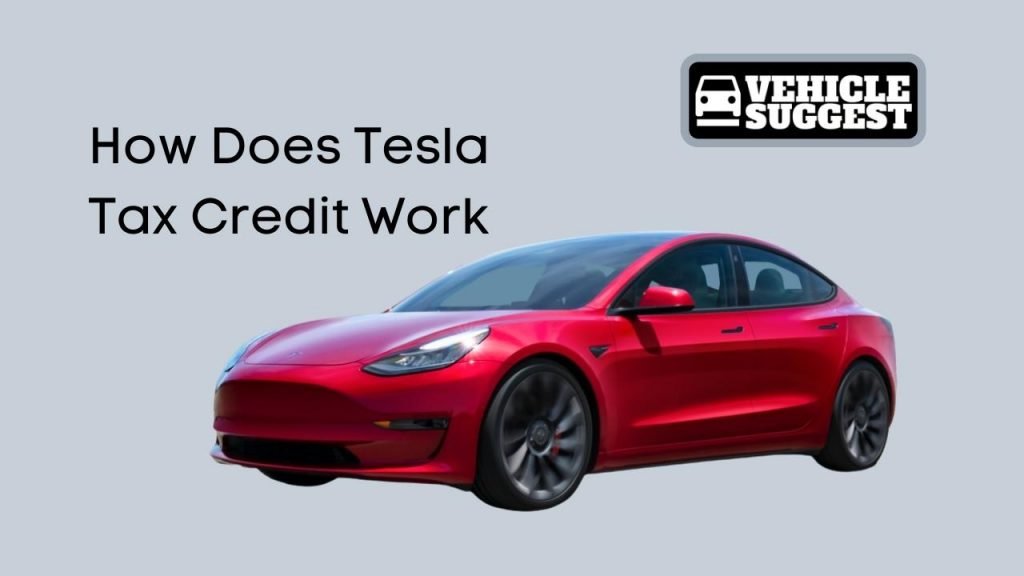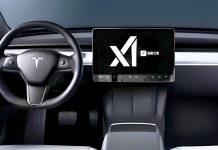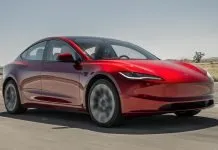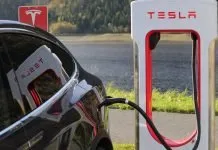Tesla Motors has already hit the 200,000 mark to get the $7500 tax credit in late 2018. Since the tax credit was only eligible for the first 200,000 cars any EV automaker rolls out, Tesla has now completely phased out the tax credit.
In early 2019, the tax credit limit was reduced to 50% from $7500 to $3750 for six months. Furthermore, the tax advantage got reduced to another 25%, with $1875 for the next six months.
Tesla and GM Motors have already reached the 200,000 EV cap. Other automotive makers are also on the verge of hitting the phase-out mark. Once a manufacturer hits their 200,000-car delivered in the US, the EV tax credit system starts to phase out.
Table of Contents
How Does Tesla Tax Credit Work
According to US laws, buyers are eligible for a $7500 tax credit on purchasing an EV that reduces the annual tax liability. That means that if you have a tax liability of $7,500 or more the following year, you’ll be able to get that money saved.
However, many are still unaware of how the tax credit on EVs works. The following guide would help you understand how the tax credit works as the tax credit law does not benefit all buyers the same way.

What Is EV Tax Credit?
Electric vehicles are great for saving our climate from harmful gas emissions. US government came up with the great idea to boost the sale of EVs over conventional cars by offering federal tax credits on EVs.
The federal tax credit incentive accounts for a flat amount of $7500. However, not everyone can enjoy the full amount of tax credit to their benefit. There are some rules and conditions tied to the EV credit scheme.
How Does The Tax Credit System Work?
The federal tax credit system is designed in a way that allows the buyers to reduce their tax liability up to $7500. The tax limit does not apply to every electric vehicle, as every EV has to be eligible and qualify for some conditions:
- The electric vehicle should be new and not on the lease. However, leasing companies can use the benefit and provide the car on lease at lower rates.
- EV should have four wheels and weigh over 14,000 pounds.
- It should have at least a 4kWh battery.
- EV should get power from charging from a plug.
- Buyers must be having a tax liability to claim the benefit of the tax credit.
EVs satisfying all the conditions are eligible for a $7500 tax credit. Hybrid cars with plug-in charging are also eligible for the tax credit as per the size of the battery.
Tax liabilities are a complicated subject, as many struggles to deal with the legality of the concept. EVs are eligible for a $7500 tax credit. That means that if you have a tax liability of $7,500 or more, the next year, you’ll be able to get the benefit of a $7500 lesser tax liability.
The tax credit does not come as a refund or deduction in the price of the car but as a benefit on individual tax liability. However, suppose the tax liability of an individual is less than $7500 for a year, that person would be entitled to the benefit of only what they owe. If the tax liability is say, $3500, the tax credit benefit would be only $3500 and no rollover of the left $4000 or refund for the amount.
To claim the full benefit of the tax credit benefit buyers must be making enough to get the full advantage. Buyers will be able to write off $7,500 of their tax liability and then potentially increase the return if getting a return or reduce the amount from total tax liability.
How Much The Buyers Be Earning For Full Tax Credit?
If you have a regular job at a company you pay those taxes in employment taxes and Social Security taxes. There is a difference between gross and net, so that’s kind of where this comes from.
Buyers must be having a tax liability above $7500 to get the maximum benefit of the tax credit scheme on EV purchases.
Suppose you are already paying these taxes, therefore, at the end of the year you file, and you have certain deductions such as you bought a house, maybe you put solar panels up, had a kid, things like that. These are all big deductions from your taxes. Now the government says, “You are supposed to pay X amount of dollars as taxes, as a wage earner”, but then you had all these deductions that government didn’t know about, and you get a refund.
How Much Does The Buyer Need To Pay For Their EV?
The bottom line of availing of the tax credit benefit comes down to the price of the EV. However, the real catch here is that one has to pay for their EVs in full as the tax credit is not going to be deducted from the EV car.
Electric vehicle makers are going to charge in full for the amount of your car, and therefore, you would have to get the same amount arranged. State and automotive makers could offer you some rebates or discount benefits, but tax credit means full payment.
Other Benefits EV Buyers Can Get
Electric Vehicles are trending, and the demand is only going upwards with the new model coming in. Many states in the US offer some of the other tax credit benefits to buyers to persuade EV sales. California Clean Vehicle rebate is a popular $2000 benefit for EV buyers. However, the recent price increase has made Tesla cars ineligible for the rebate benefit.
Recent discussions on President Joe Biden’s The Build Back Better Bill offer a $7500 tax credit revision opportunity. Under certain conditions, EV carmakers can get tax credit benefits up to $12500. The only US-made electric vehicles would be qualifying for the credit. Furthermore, there is a thing with the union- negotiation as well.
It depends where you live. Electric vehicle buyers can benefit from local incentives and generous offerings of their state to opt for an eligible EV.
Colorado offers the credit up to $5,000, so with the federal tax credit, you can save $12,500 on the price of the car. Before you buy a battery-electric or other plug-in car, be sure to check with your local utility. They might also offer you credits, discounts, or time-of-use rates that can lower your cost of energy.
Bottomline
Tesla has confirmed that they have completed delivering 200,000 cars in July 2018. Federal EV tax credit and solar tax incentives are there for all-electric cars. However, there is always some or the other condition for the cars to qualify for some benefit on the total cost. Many states are offering decent incentives for purchasing electric vehicles.



















3terrestrial